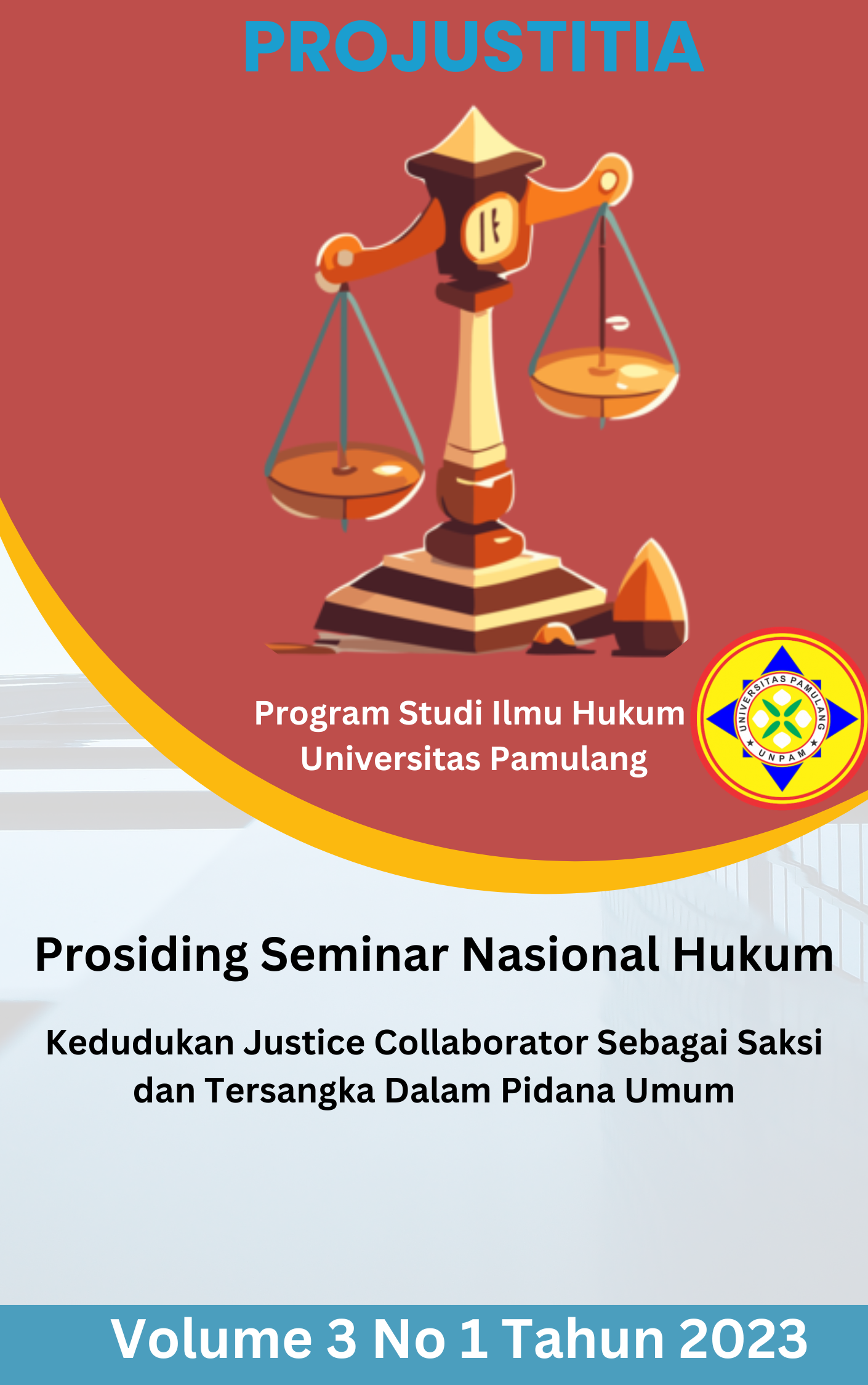STATUS KEABSAHAN PERKAWINAN TRANSEKSUAL MENURUT UNDANGUNDANG NOMOR 1 TAHUN 1974 TENTANG PERKAWINAN (STUDI KASUS PENETAPAN PENGADILAN NEGERI SUMEDANG NOMOR 15/Pdt.P/2015/PN.Smd)
Abstract
Indonesia is a country that has the fourth largest population compared to other countries in the world. The large number of residents makes various kinds of community phenomena occur, and recently there has been an increase in the phenomenon of Lesbian, Gay, Bisexual, Transgender or better known as LGBT. As time goes on and the LGBT phenomenon is still ongoing, many people eventually follow it and many also carry out sex change operations or can be called transgender or transsexual. People who do sex reassignment surgery are caused by various factors, one of which is a feeling of dissatisfaction with the identity they have and it is not in accordance with their psychology. Problems that can arise from sex reassignment surgery are in terms of marriage. Article 10 paragraph (1) of Law Number 39 of 1999 concerning Human Rights stipulates that "Every person has the right to form a family and continue offspring through a legal marriage". However, on the one hand, transsexual marriages are not allowed and are even prohibited by religion because they are considered as same-sex marriages because the marriage law considers that the legal sex is the sex at birth. The purpose of this study is to determine the legality or validity of marriages carried out by someone who has changed sex (transsexual) and examines the legal consequences of marriage for a transsexual. This research is a normative legal research, by analyzing laws and regulations related to the validity and legal consequences of transsexual marriage, and qualitatively analyzed using statutory regulations, concept approaches and case approaches. The results of the study revealed that transsexual marriage without legalization/determination of sex change from the District Court based on Article 2 paragraph (1) in conjunction with Article 1 of Law Number 1 of 1974 concerning Marriage is invalid because the sex change has not been legalized by the District Court and the population documents do not change. Changing sex without a medical reason is haram, especially for transsexuals who are Muslim, and transsexual marriages are prohibited because they are recognized as same-sex marriages. The legal consequence of transsexual marriage without a sex change determination from the District Court is that the marriage is not recorded (considered an underhand marriage). Another legal consequence of transsexual marriage without or with the determination of a valid sex change is that neither party can have children, which is one of the goals of marriage. This research focuses on two types of mandatory outputs, namely national journals, and optional outputs such as proceeding journals.
Keywords : Transexual, Sex Change Operation, Marriage.


